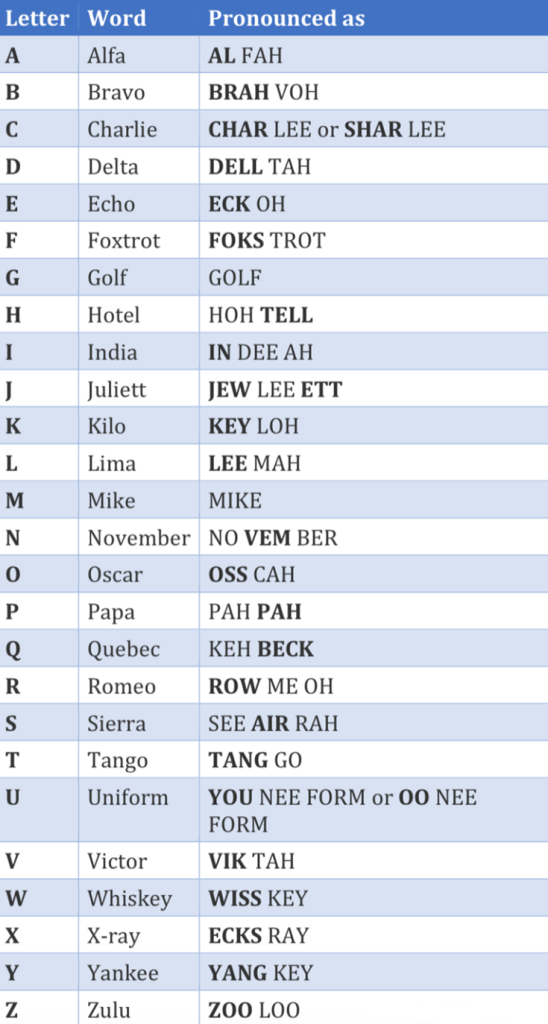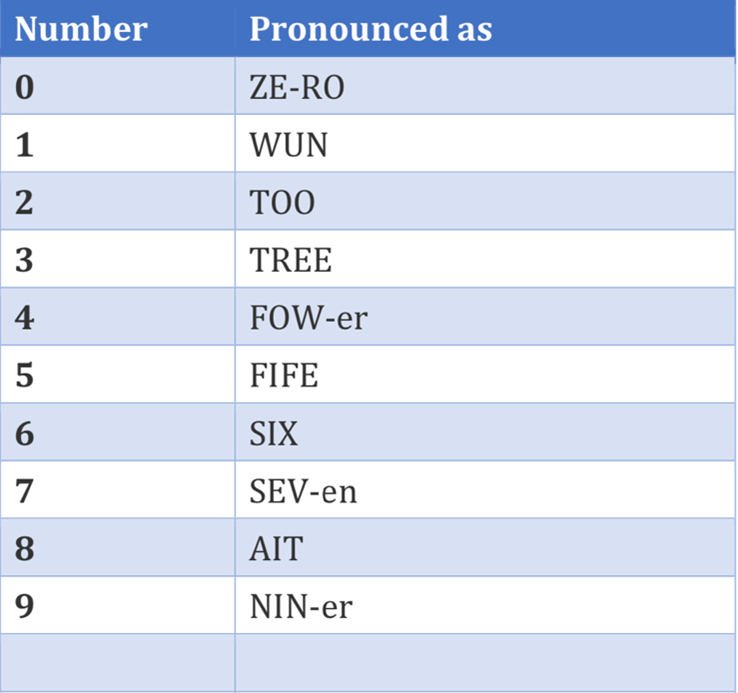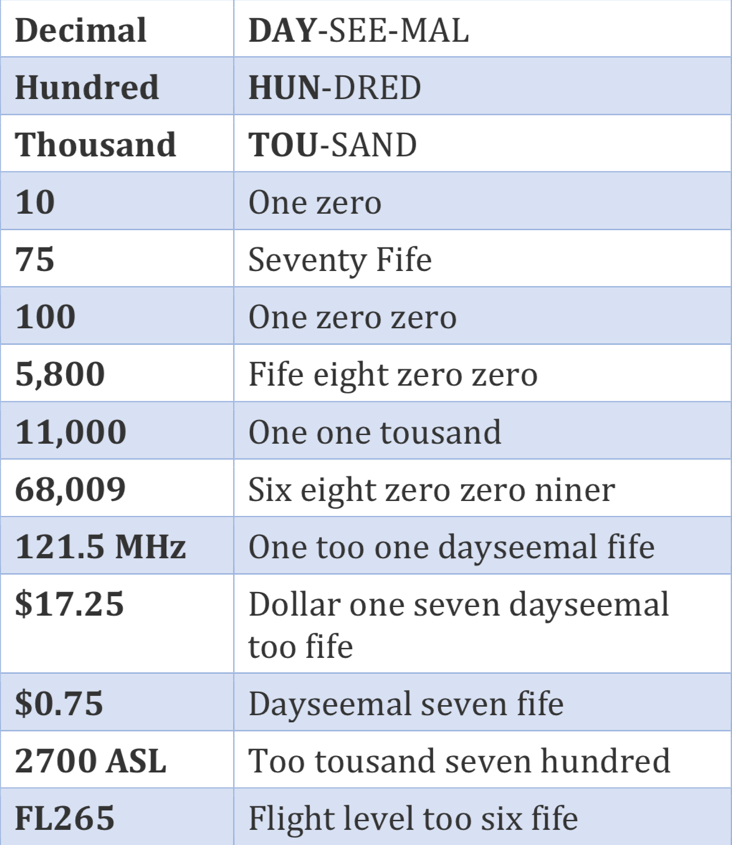Alfa, Bravo, Charlie, Delta, Echo, Foxtrot, Golf, Hotel, India, Juliett, Kilo, Lima, Mike, November, Oscar, Papa, Quebec, Romeo, Sierra, Tango, Uniform, Victor, Whiskey, X-ray, Yankee, Zulu. Numbers are mostly pronounced as normal, except often 9 is pronounced “Niner” so it doesn’t get confused with 5.


The use of ITU (International Telecommunications Union), or NATO, phonetics in both tactical and formal message traffic handling is essential for accurate and efficient communications. From the beginning of radiotelephone communications, several different phonetic alphabets have been used. During WWII, the United States used one version, while the British used another. Other countries had a different phonetic alphabet than either of those allies. In 1956, the ITU adopted the International Civil Aviation Organization (ICAO) phonetic alphabet. Today it is the worldwide standard for military, civilian aeronautical, and maritime use, search and rescue groups, public safety, and the Amateur Radio Relay League (ARRL).

This excerpt from an article in Popular Mechanics sums up well the importance of using phonetics to distinguish between similar sounds:
Standing in front of the cashier in the take-out line, you tell them your name so you can pick up that pizza you called in 20 minutes ago. The confused cashier tells you, “Hmm, I don’t have an order for ‘Kim.’ Someone just picked up an order for ‘Jim,’ and I have one here for ‘Tim.’
Usually, that kind of communication snafu is a minor inconvenience. In this case, you’ll either mistakenly take the order for “Tim,” or you’ll place your order again and suffer a minor delay in getting your grub. But it could be far more dire if such a miscommunication were to occur while giving an emergency dispatcher a street name, or while giving instructions to a pilot making an emergency landing. To prevent such communication errors, agencies, businesses, services, and civilians around the world use the NATO phonetic alphabet.
The NATO phonetic alphabet is the universally adopted spelling alphabet, or code, used to clearly and precisely communicate words or letters both within the same language and across languages. It is important for both speech perception and word recognition, Meghan Sumner, a linguistics professor at Stanford University, tells Popular Mechanics.
“Many sounds are highly confusable within a language,” Sumner says. For example, the sounds “th” and “f” are very similar (thin, fin) and easy to confuse, as are “m” and “n” sounds, she explains. “Especially in contexts that are noisy or when you can’t see the talker,” such as over a radio with background noise or interference. The NATO phonetic alphabet helps avoid ambiguity and makes it clear what the letters are, she says.
Several letter codes and abbreviations using the spelling alphabet have become well-known, such as Bravo Zulu (BZ) for “well done,” Checkpoint Charlie (Checkpoint C) in Berlin, and Zulu Time for Greenwich Mean Time or Coordinated Universal Time. During the Vietnam War, the United States government referred to the Viet Cong guerrillas and the group itself as VC, or Victor Charlie. The name “Charlie” became synonymous with this group.
Questions? Share them in the comments below or email me at KE8FMJ@arrl.net.

